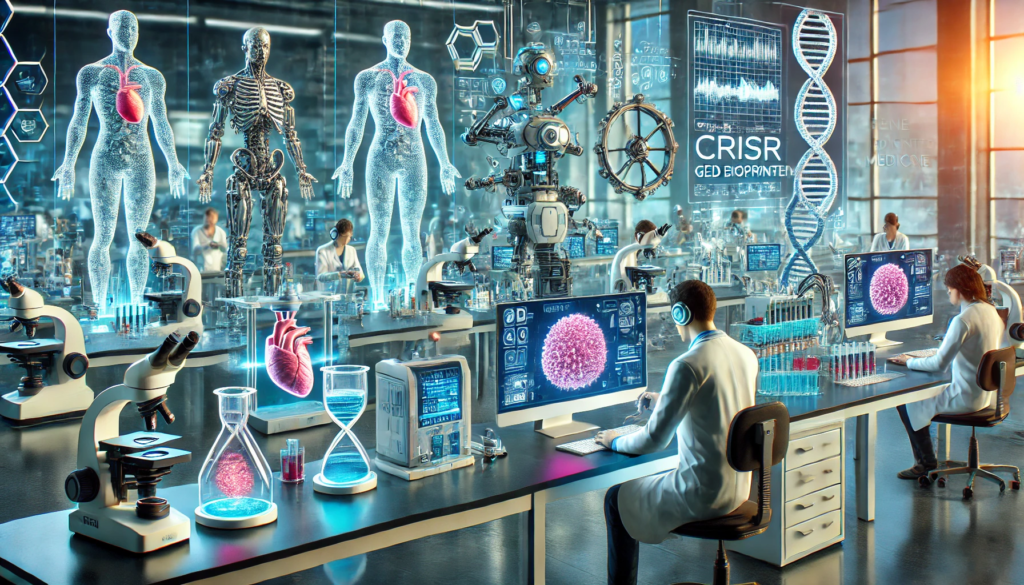Chemists have successfully created an artificial DNA molecule, potentially revolutionizing gene therapy.

Scientists use E coli bacteria to produce recombinant human insulin, significantly improving quality and availability for diabetic patients. This technology offers great promise for future advances.
Herceptin (trastuzumab) dramatically extends survival for those diagnosed with HER2-positive cancer by selectively targeting tumour cells while sparing healthy ones, marking one of biotech’s greatest successes.
Monoclonal Antibodies (mAbs)
Antibodies are proteins that bind specifically to an antigen to neutralize or block it; therapeutic antibodies are commonly used in treating cancer, inflammation and autoimmune disorders.
mAbs have become one of the great biotechnological successes of the 20th century. Once created, their creation was both laborious and expensive, but since the introduction of new cloning and antibody production technologies, they are one of the world’s most widely prescribed medications.
Scientists first identify an antigen they want to target before screening millions of monoclonal antibodies to find one with strong binding to it and possible therapeutic properties. When they identify a promising candidate, they develop a cell line capable of reproducing large quantities of this antibody – typically made up of Chinese hamster ovary (CHO) cells- well-suited for producing high-yield recombinant proteins.
Once a mAb has been produced, it must undergo an intensive clinical trial program to assess its efficacy and safety and determine its scope of application for commercial viability. During these trials, different conditions will be tested under which it can be evaluated to ensure there are no side effects and that interactions don’t arise between drugs and the mAb being assessed.
mAbs are most often employed to treat cancer, rheumatoid arthritis, allergies and infectious diseases such as influenza or tuberculosis; however there has been increasing research interest in using them against neurodegenerative disorders or cardiovascular illnesses as well.
Because of their complex structure, monoclonal antibodies (mAbs) are some of the hardest therapeutic drugs to create and manufacture. This is likely due to their expensive living cells being required in production and extensive quality control testing during each stage of production – two key obstacles that create barriers to access and equity in healthcare distribution. As a result of all this complexity and expense, they remain some of the most costly medications on the market. They may restrict accessibility or raise concerns over equitable healthcare distribution.
Personalized Medicine
Genetic technologies now help doctors better understand the causes of diseases and develop personalized treatments tailored specifically to specific patient characteristics. With customized medicine now here to stay, it promises greater precision in diagnosis, treatment and prognosis than ever.
At the core of personalized medicine lies each person’s genetic code: this unique collection of short strands of DNA acts as instructions for our bodies to produce proteins and perform other vital tasks. Genetic differences contribute to different diseases and conditions, influencing how each person responds to medications, foods, or environmental stresses.
Before the advent of genomic sequencing technology and advanced bioinformatics tools, medical treatment programs were typically broad. But now with such advances as DNA sequencing technology and other bioinformatics tools available to clinicians, they are using genomic information to pinpoint specific variants in genes, RNA, or proteins which may be linked to disease.
With this greater insight into disease causes, clinicians can customize medication, nutrition, exercise and lifestyle interventions to each patient’s unique biological makeup – or personalized medicine. This novel approach may reduce morbidity and mortality as well as costs by eliminating costly repetition losses due to ineffective therapy or side effects.
Blood tests now can quickly and accurately identify early-stage cancers and measure responses to certain drugs. Genetically engineered immune cells may even provide long-term protection from cancer recurrences. Furthermore, experimental gene therapies allow children living with genetic conditions such as Duchenne muscular dystrophy or Zellweger spectrum disorder to survive and thrive despite debilitating or fatal genetic illnesses like Duchenne muscular dystrophy or Zellweger spectrum disorder to survive and flourish.
However, personalized medicine remains challenged by numerous barriers. Cost is one major barrier, and regulators and reimbursement systems must improve to ensure physicians receive adequate compensation for accurate prevention and diagnosis rather than simply performing procedures. Furthermore, physicians must receive training in genomics and other emerging technologies.
Bespoke Medical Therapies
Bespoke treatments are tailored therapies designed specifically for each individual. This may involve drugs, supplements and treatments such as energy-based systems, aesthetic procedures (facial injectables or microneedling), skin care regimens, nutraceuticals or cell-based remedies, all created individually to address individual patients. Bespoke treatments offer an alternative to mass-produced medication, which could cause harmful side effects.
Personalized medicine (also referred to as precision or targeted therapy) is an increasing trend in medicine. This trend involves using new tools to assess a patient’s molecular profile and then choosing an effective treatment protocol based on it. Similar techniques used by certain complementary and alternative medicine approaches have proven helpful for minimizing harmful side effects from medication and increasing success rates when fighting disease.
As more physicians turn to personalized treatments, physicians can address other factors contributing to a patient’s illness. Diet and environmental influences may impact mental well-being, so physicians must take an interdisciplinary approach when providing patient care, considering all elements that might influence one’s condition.
As well as treating the root cause of disease, personalized medicine can save patients money in the long run by eliminating costly hospital stays and medications that treat symptoms instead of the cause. Furthermore, customized therapy may eliminate unnecessary surgeries or adaptive equipment purchases.
Modern advances in medical science are heralding the future of personalized healthcare. A new healthcare model called bespoke treatment has begun to gain popularity, whereby individuals pay a monthly or annual fee to directly access their primary care physician. At the same time, it may cost more than traditional health insurance options, such as 24/7 access and customized plans for treatment.
Advances in gene editing technology, such as CRISPR-Cas9 and mRNA vaccines, have provided new treatments for genetic diseases, while artificial organs offer hope to those awaiting transplants. However, before this technology can become widely utilized in personalized medicine, it must first address its inherent ethical considerations — specifically, how gene editing affects future generations through germline edits that pass onto future generations.
Genetic Modification
Genetic engineering allows scientists to alter an organism’s genes for desirable characteristics. This may involve replacing one genetic sequence with another or adding one completely new one. Once made, these modifications become part of its genome and will pass down through generations. Genetic engineering has many biomedical applications, including brewing yeast, producing cancer drugs and many more applications.
Most organisms store their genetic information in DNA molecules found on chromosomes. Each DNA strand encodes amino acids, making proteins essential to cell and tissue function. Scientists can now transfer genes between organisms – from mammals to plants – to introduce desired traits.
Healthcare professionals recognize that many diseases stem from genetic mutation, so healthcare practitioners may attempt to replace these defective genes with healthier versions. For instance, several forms of cancer can be traced back to an under-functioning gene called p53 that does not function correctly – by replacing this defective version with one functioning normally, physicians hope they can prevent or even treat cancer altogether.
Scientists use genetic engineering to enhance organisms like crops and livestock. Genetic modification makes them more resilient against diseases, insect damage, drought conditions or nutritional deprivation; faster growth or higher dietary values can also be achieved. Today, genetically enhanced products are widely used, often known as GMOs (genetically modified organisms).
This technology promises to increase crop yields but can also present dangers. If chemical companies rely on microorganisms as a cheaper means to produce chemicals than conventional methods, an outbreak could occur that involves lethal bacteria such as Y. pestis or poliovirus, causing costly repairs for governments and businesses alike.
Concerns surrounding genetically engineered organisms extend to environmental and economic issues. If these organisms can produce chemicals that deteriorate infrastructures, this could pose a danger to human life and imperil economies.

